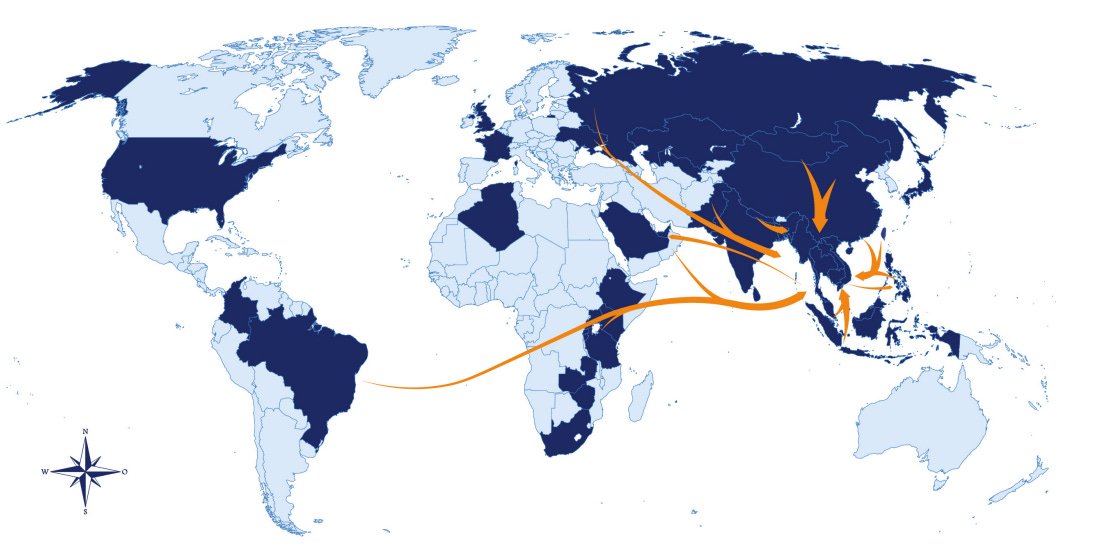HONG KONG — In an unprecedented international crackdown, more than 1,800 people were arrested across Asia in a coordinated operation aimed at dismantling scam networks that have plagued the region for years. The month-long operation, which concluded on May 28, involved police agencies from Hong Kong, South Korea, Thailand, Singapore, Macao, Malaysia, and the Maldives. Together, they unraveled criminal webs responsible for online shopping fraud, telephone scams, fake job and investment offers, and other illicit activities.
Authorities said the operation successfully intercepted over $20 million in fraudulent transactions and froze nearly 33,000 bank accounts. “These scam syndicates don’t just defraud victims—they also exploit their own workers, many of whom are trafficked or lured with false job promises,” said Wong Chun-yue, chief superintendent of Hong Kong’s Commercial Crime Bureau.
Southeast Asia’s Scam Factories: A Nexus of Exploitation
According to reports by the U.N. Office on Drugs and Crime, the epicenter of these scams lies in Southeast Asia’s border zones, particularly in Cambodia, Laos, Myanmar, and the Philippines. These regions have become safe havens for organized cybercrime groups, whose operations often shift location to stay ahead of enforcement efforts.
Digital Personal Data Protection Act, 2023 – Important Timeline
The scam centers are known for entrapping individuals into exploitative working conditions. Workers, often misled by employment ads, are forced to commit fraud through fake investment pitches, romance scams, and online gambling schemes. “They are victims too,” said Aileen Yap, assistant director of Singapore’s anti-scam unit. “They live under threats, violence, and near-slavery conditions.”
In March, a finance executive in Singapore was defrauded of nearly half a million dollars through a deepfake video scam. The money was recovered thanks to swift cross-border collaboration—an example of how international cooperation is becoming crucial in tackling cyber-enabled fraud.
An Expanding Crisis of Digital Slavery
Beyond the financial scope, the operation spotlighted the human cost of Asia’s scam economy. Victims include not just those defrauded globally, but also the digital laborers trapped in scam compounds. Many of them are subjected to physical abuse, wage withholding, and constant surveillance.
The U.N. report warned that East and Southeast Asia have become breeding grounds for a new form of organized digital slavery, where human trafficking converges with cybercrime. These scam factories have reportedly become more sophisticated, leveraging AI, deepfakes, and crypto tools to mask operations and manipulate victims.
Experts say the bust is only a starting point. “We’re dealing with a shadow industry that thrives on deception and desperation. It will require sustained pressure, intelligence-sharing, and accountability from tech platforms and regional governments alike,” said a cybercrime investigator involved in the operation.
The arrests of over 1,800 suspects signal a major step forward in combating Asia’s transnational cyber fraud economy. But the root problem—an ecosystem of exploitation stretching from Myanmar to Hong Kong—remains deeply entrenched. As nations scramble to respond, this coordinated crackdown marks the beginning of a larger global reckoning with digital crime, human trafficking, and the urgent need for ethical tech regulation.



